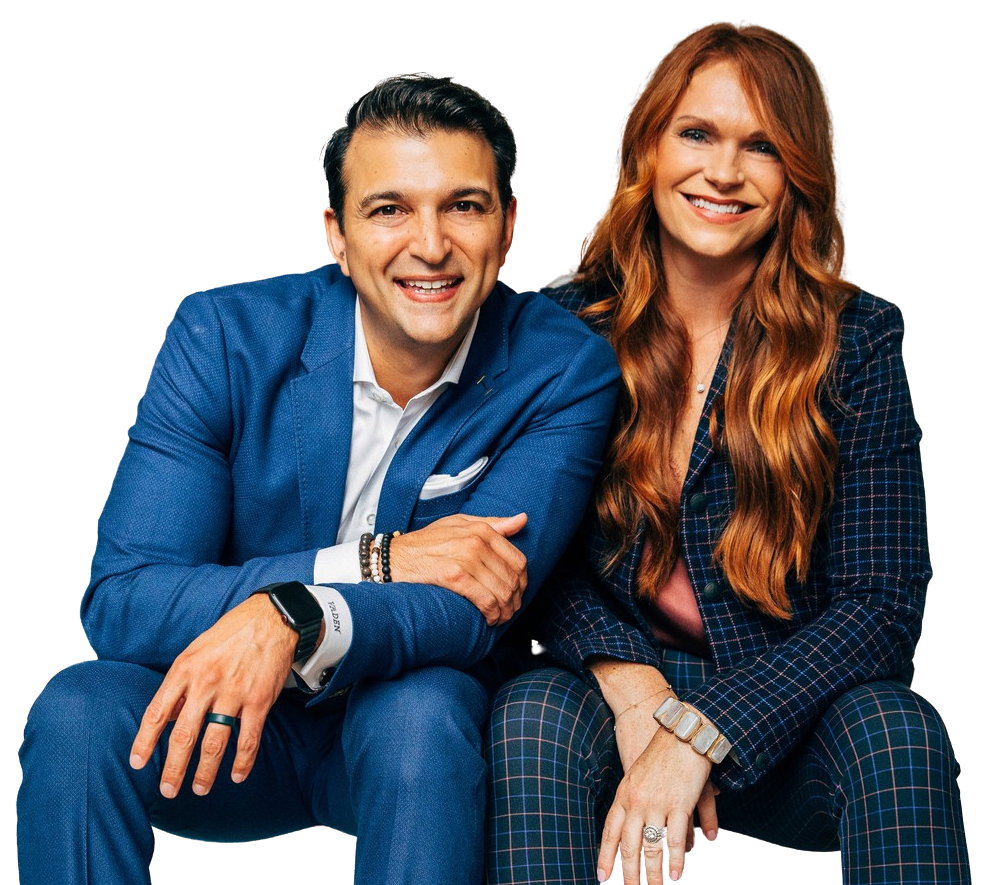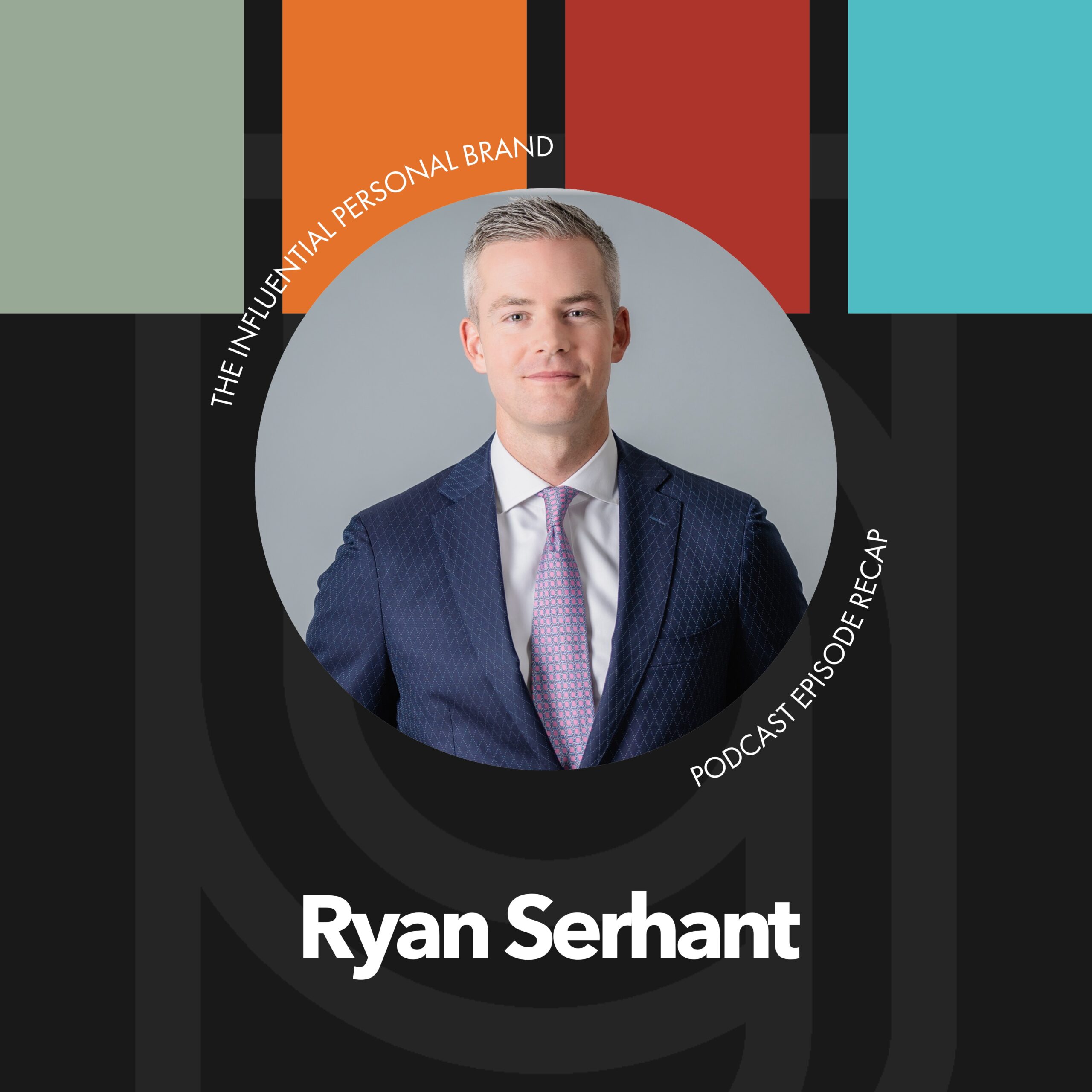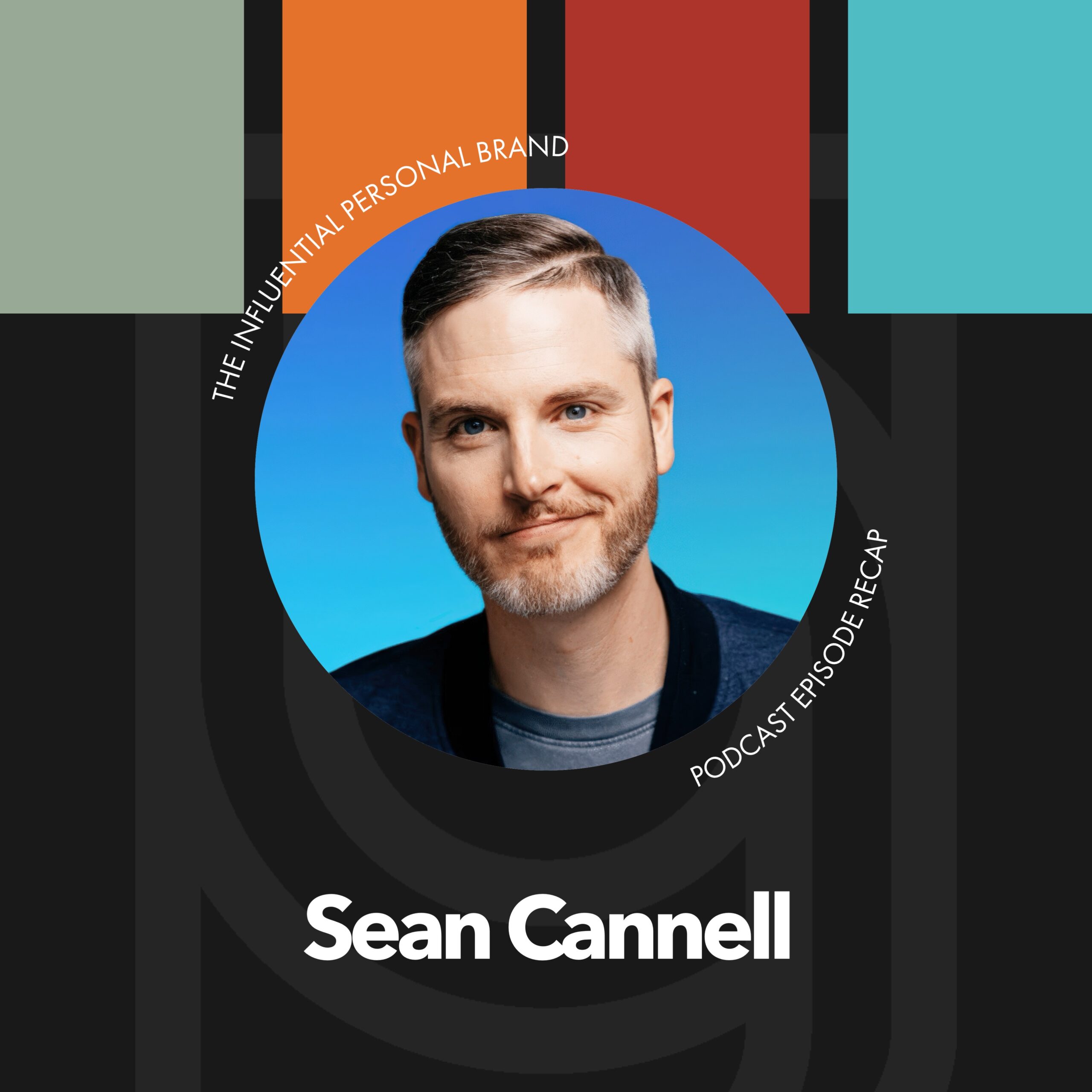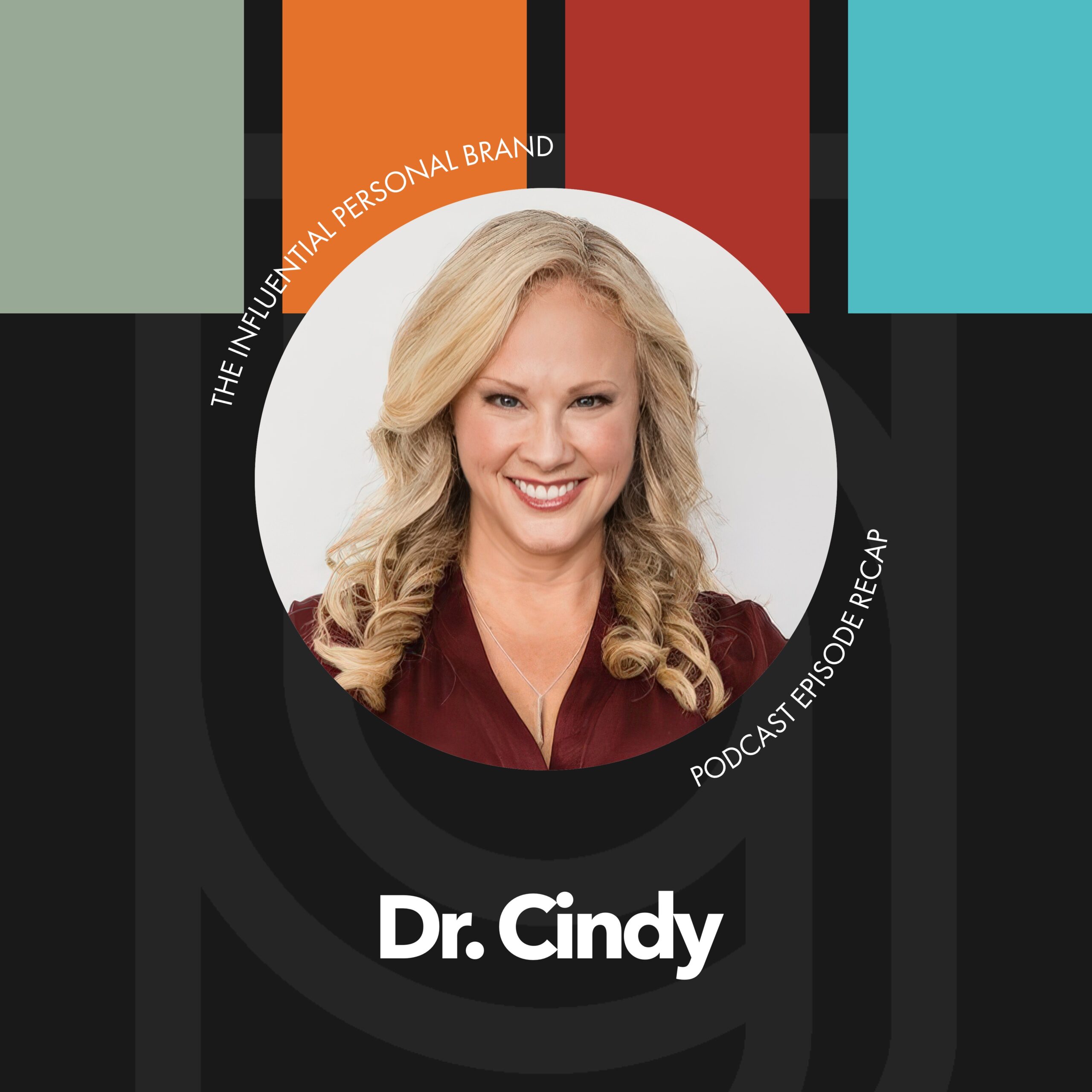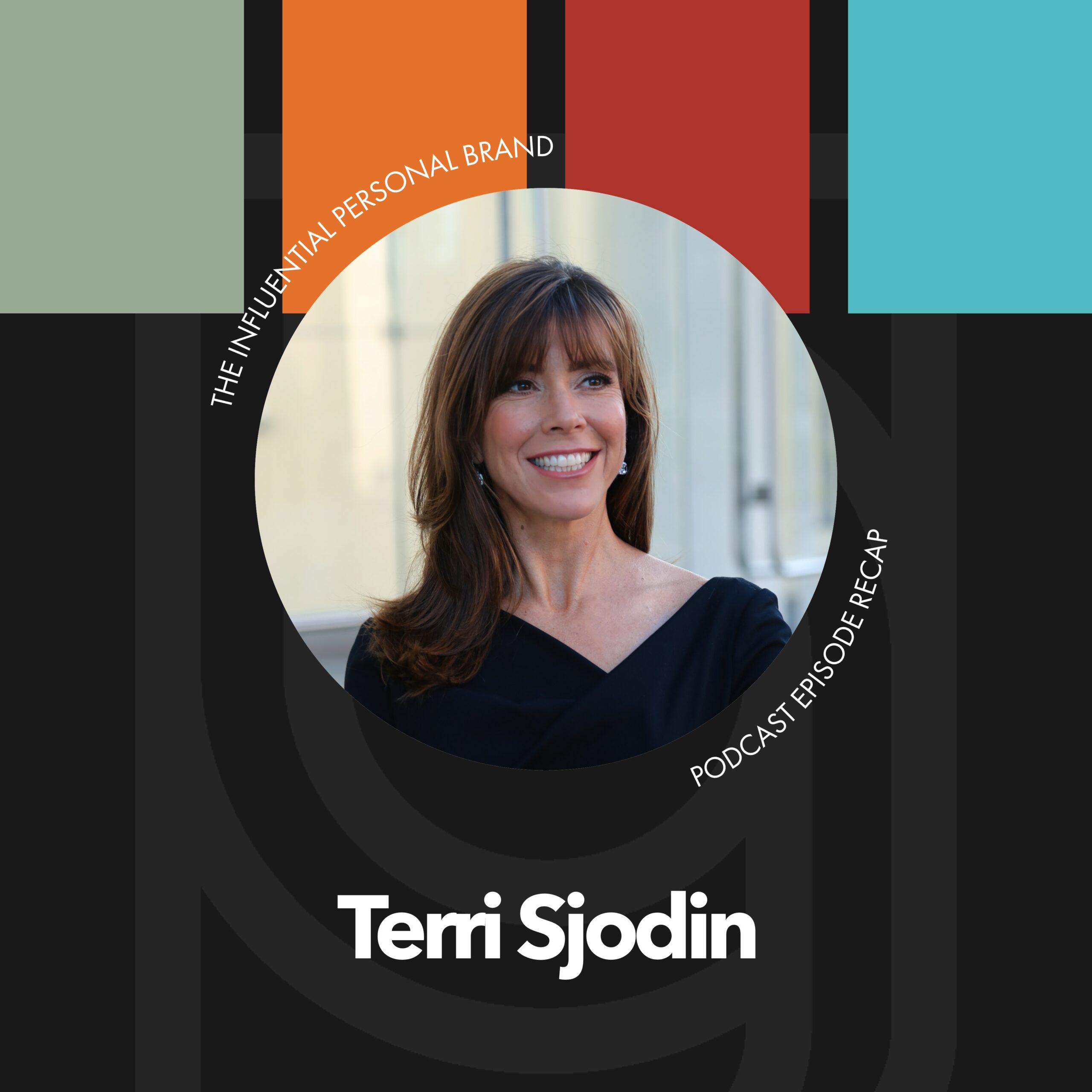RV (00:02):
Here we go. We are back on the influential personal brand podcast recap edition today. We’re talking about the interview that we had with Mike Michalowicz, who is a long time friend of ours. Now at this point and a really brilliant author. We spent a lot of time getting to know Mike here in the last couple of years. And I know AJ has read some of some of his work and he’s just a friend, a friend of the community, and I am joined by AJ our CEO of brand builders group AJ. Welcome. Good to see you
AJV (00:32):
Always happy to be here.
RV (00:34):
Why don’t you kick us off today and share you know, let’s just kind of go back and forth. Here are our top three takeaways, but why don’t you get us started on, on what did you learn from Mike?
AJV (00:44):
Well, first of all, I had a really hard time watching this interview because all I could focus on was this enormous beard he has grown. So all I was like distracted the first 10 minutes of going, how long did that take? How does he care for this? Why is it so long? So first of all, just note like the first 10 minutes, I wasn’t quite focused, but what I did take away in those first few minutes, and I thought this was really interesting. So I don’t think this is necessarily like a tip or a technique or anything. I thought it was fascinating. And it’s that 98% of businesses in the United States are considered small business. Only 2% are considered enterprise businesses. So like, you know, your Amazon and your Googles and your Teslas only 2%, 98% are considered small business. And all of that, 98%, most of them are considered micro business, which means they’re doing under $1 million in revenue.
AJV (01:46):
Like that’s insane. And I just was like, wow, I think we forget because we focus on these huge companies all the time and the media and everyone’s case studies and comparisons. You’re talking about the Coca-Cola’s and the Amazon’s and Facebook. And it’s like, yo, that’s only 2% of us business. 98% are the rest of us like myself and Rory. And most of you listening and even a huge percentage of the 98% are micro businesses, which are doing less than a million dollars in revenue. And I think that’s really, really important when you choose what outlets to listen to. What books do you read what entrepreneurs to follow it’s. I think that’s really significant because I think there’s amazing. There’s amazing opportunities to learn from these enterprise businesses. Like I love learning about Disney and Nordstrom at the same time, I don’t have the ability or the funds or the Reese’s resources or the staff or the time to implement some of those things at that level.
AJV (02:56):
But if I was looking at someone who was just a slight step ahead of me, like, how are they doing this? I would be able to act so much faster and probably with a lot more confidence in going like, no they’re doing it. They’re just one step ahead of us. We got this versus like one day I want to have a customer service team, like the Ritz-Carlton and the four seasons, and we’re going to deliver, you know, Hain tattles to everyone who comes to our events. Right. and so I thought that it was really, really important just to take a step back and remember that for all of us, especially beaver, if you’re B2B and some capacity, it’s like, we’re really selling to other businesses who are considered small business and a huge percentage of those are micro business. And so how you reach those people, I think is fascinating, which is what the majority of the interview is about is your lead attraction process. But it’s just taking a moment and realizing 98% of American business or small business. And that’s what we’re going after. That’s who we’re selling to that’s who we’re a part of. And I guess that was a good statistic that I hadn’t heard in a really long time. So, you know, I was attracted to the, the statistic. But I just thought that was really good. So that’d be my first
RV (04:08):
Interesting, well, I think, you know, you make a good point there about like, if most businesses are micro businesses, then what would be relevant most relevant for us would be to learn from other micro businesses or ones that are a step ahead. And I think a lot of this conversation really was about gaining instant attention. And one of the things that he said was about relevance. He said, you know, our brain is designed to efficiently ignore things that are irrelevant. I thought that was such an eloquent, eloquent quote. Our brain is designed to efficiently ignore things that are irrelevant. And basically in marketing, you’ll hear this phrase. It’s, it’s a good phrase. It’s a good concept. It’s called a pattern interrupt that, that people, as they’re scrolling through their social media feed or zipping through their inbox, or just cruising along down the highway, you have to do something like that is a pattern interrupt that is sort of jarring or jolting to even get the split second opportunity to tell them what you do or introduce yourself.
RV (05:17):
And that you don’t, we don’t realize how much the brain is constantly ignoring and that the brain has to ignore there. The, I loved when he was talking about like, you know, if you just look around your office space, there’s so many things there that your brain is ignoring and you have to ignore it for survival as a way to like conserve mental capacity, to focus on like things that are really important and go that’s, that’s the battle here that marketing is really neuroscience and understanding the way that attention works. So I, that was, that was my first big takeaway.
AJV (05:50):
Yeah. I think that’s really, that’s really good and important. And similar and I had highlighted that as one of the, I thought that was a very interesting and what you said eloquent way of describing that the followup to that, and I’ll make this, my second point is don’t confuse different without rages. And I thought that was really good because I think some people think in order to stand out in order to differentiate, we’ve got to do something that’s completely outrageous. That’s never been done before. And that’s not necessarily the case, right. It’s just because you want to be different doesn’t mean you have to be so outrageous that it’s completely polarizing or it’s, you know, so outlandish that it takes some incredible ideas. Like that’s not really what we’re saying here. And I, I loved that whole concept of pattern interrupt and what it made me think about.
AJV (06:42):
And I thought about a couple of different examples of this. And for those of you who don’t know, you can go and Google the videos on this because they’re so stinking hilarious, but just a pattern interrupt, right? Just not outrageous, but different would be the advertising of some of these brands like Poo-Pourri right. Like that is just enough where it’s got personality to the brand. So you kind of fall in love with the personality of these people who were behind Poo-Pourri, which is like, you know, the spray that you spray on the toilet before you, you know, go to the bathroom, but the commercials are hilarious and they’re like these like mini series, like it’s, it’s not your typical 32nd commercial. They’re like three minutes. And it tells this whole storyline and you’re like, I got to see what happens next. What, what are they going to do?
AJV (07:27):
What are they going to say? And then the other one is the Squatty potty, right? It’s like that thing, which you put your feet on. I don’t know why are these are all about in the bathroom, but they’re so hilarious. And it kinda like gets you trapped in, and you’re no longer even paying attention to the product. You’re paying attention to the story. So it’s a true, you know, pattern interrupt. But that doesn’t mean it’s so outrageous that, you know, no one else could do it, that it’s just different enough that it catches your attention in a new way. So asking yourself, like, what is everyone in my industry doing? And then just think about how could I do it or talk about it or communicate it just a little bit differently. And I, I won’t go on a tangent on this because I could, but I thought about one of our clients and I hope he doesn’t mind me sharing the story.
AJV (08:16):
But one of our clients, his name is Matthew Davis and he’s an attorney, right. So he’s a lawyer and he’s got a law firm in Oklahoma. And, but here’s what I love about it is like, he’s also this like old school, like gun metal rocker. Right. So it’s like, you know, like eighties hair and like hardcore, like, you know, like I think about like seventies rock but just like Jammin, right? So I’m like white snake. And that’s like, that’s a huge party, like who he is deeply then this like professional, like white shirt and tie. And so they’ve got this whole new idea of talking about the lawyer. And they’re going to make all these hilarious, like, you know, F the law stuff. And I just think like, part of that is like, well, that is not what you would expect from the typical normal everyday attorney. Right. But it’s like just enough different where he’s infusing his personality. They’re not trying to be outrageous. They’re just living into how they’re already different and infusing that into their business. So a couple of rants there, but I thought those were all very relevant of you don’t have to be outrageous to be very different.
RV (09:24):
Yeah. That’s a good distinction. I, I, I made it, hadn’t made a note of that. My second takeaway was just kind of related to the first thing, but was that the brain immediately processes something as threat opportunity or ignorable, like threat opportunity or ignorable. And if you just think about like your website or your social posts or the start of your video, and you just go, okay, step back, detach yourself from the content for a second. And just look at the thing that you’re creating and ask yourself, is, are people going to see this as a threat and opportunity or an ignorable? And, and for most of us, you know, personal brands, we’re living in that space of opportunity. We want them to see opportunity. We want to, to quickly tell them what is in it for them, so that the viewer hears it.
RV (10:20):
And you know, this is, I recently heard a, an advanced training on like growing your YouTube channel. And this was one of the things that they were talking about is that basically the start, like the first seven seconds out of your mouth on a YouTube channel should be something like, Hey, welcome in this video, you’re going to learn blankety, blankety, blankety blank, and three reasons why you shouldn’t blankety, blankety blank, stay tuned, and we’ll get, you know, stick around. And then you go into the trailer and think, and so they’re like immediately hitting people with that opportunity. I think of the title tests that we teach at brand builders group to our, to our clients in our phase one course, one brain finding your brand DNA event. We talk about why most titles are terrible and it’s, it is very much connected to this conversation with Mike about just going, you have to demonstrate within milliseconds how, what you’re communicating is an opportunity for the viewer, for the reader, for the listener. And it’s very simple, but it’s, it’s super, super difficult. And you just, you just gotta be intentional about it.
AJV (11:26):
Yeah, no, I think that’s really good. You really went on like the science brain.
RV (11:31):
I know. Yeah. I was on the, I was in the nerdy. I was nerding out over this. I was like, Ooh, I like this.
AJV (11:37):
That’s awesome. Okay, so this is my last one. I’ll make it short and sweet since my other ones were really long. But it was he asked a simple question, like, what’s your number one source of lead generation. And for most small business, it’s word of mouth and words. It’s somewhat reactive, not a whole lot of proactive. And I think this is really true. It’s like even in our business, you know, ad say we’re just exiting our start-up mode from brand builders group. We’re three years in. And most definitely a hundred percent of the business that we have garnered in the last three years has come from word of mouth, through affiliates or clients or through friends and family and past clients. But it’s definitely been word of mouth. And here we are three years in and we’ve built an awesome, you know, multi seven-figure business off of word of mouth, but probably to go to the next level, we’re going to have to do something else.
AJV (12:31):
So it’s like, at what point do you prepare yourself to move from this reactive? You’re just doing such a good job. Everyone is talking about it to no. Now I’m intentionally going after growing and expanding, scaling my business with intentional proactive marketing. And if you really want to grow, then you’d have the responsibility to market. And if you believe in what you do, then you have the responsibility to go out and tell people about it. Right. And I think a lot of people very much put marketing off to the side of like, oh, we’re, we’re, we’re doing just fine. We’re going to let it grow organically. And I think that there’s no problem with that. And then there’s another school of thought of, well, if you really believe in what you do so much, that you think it helps and you think it changes lives, then you have the responsibility to get out there and make sure people know about it. And I think there’s, you know, somewhere in between is where a happy medium is probably where you should be. But I also believe that it’s like, you know, if what you do really helps, then it is your job to get out and tell people about it. I E marketing.
RV (13:34):
Yeah. That’s I think a marketing is just like one of those things. It’s a skill you have to learn to do it. You’ve got to do it consistently. You got to choose to do it over and over. And yeah. I think what you said there AIJ is so true. It’s like, so to scale, at some point you got to extend beyond just the, just the word of mouth. When I think about marketing lessons that we’ve learned which is also my third takeaway here, because Mike reminded me of it was that in your marketing, you have to tell people exactly what to do. Like the marketing cannot just be like brand awareness or impressions. You have to include a direct call to action, which would say, you know, make sure you like, make sure you follow, make sure you subscribe, make sure you share, leave a comment, register, click this link, sign up, go like you have to include the actual instruction and the order and the command because otherwise people don’t do it. And it just because you, they have to be told exactly what you want them to do. So don’t just tell them who you are, tell them what you want them to. And that’s a big, that’s a big thing that I’m trying to focus more on. And cause you see like all the top marketers are doing that all the time. They’re very clear with what’s the instruction that they are, they are driving with their audience. So on that
AJV (15:06):
Of you who are listening, what we want you to do is go and subscribe to the podcast, the influential personal brand podcast. Here’s what you need to do. Subscribe, make it very clear, just like that,
RV (15:20):
Just like that. And if you haven’t yet requested a call with our team, go to free brand, call.com and request a call with our team. And we can start working with you formally on, on crafting your custom personal brand strategy plan to help you build and monetize your, your impact in your influence. So check that out. Also keep coming back every single week. We’ll catch you next time on the influential personal brand. Bye-Bye.



